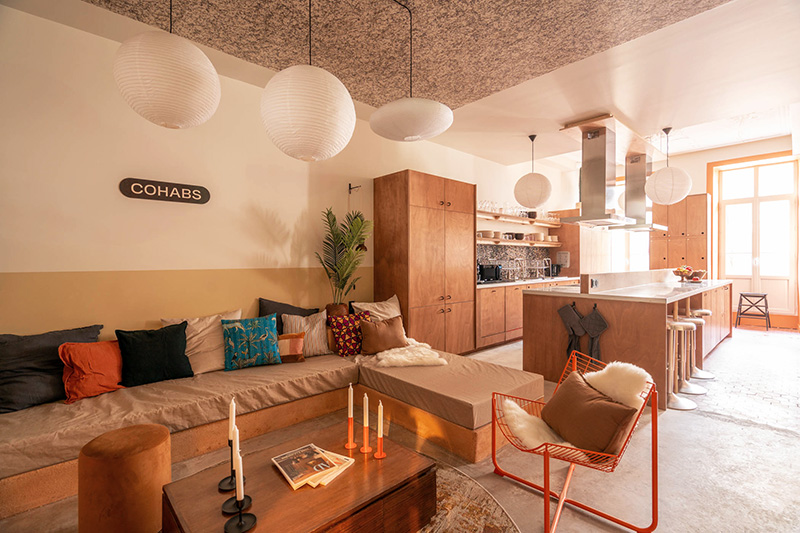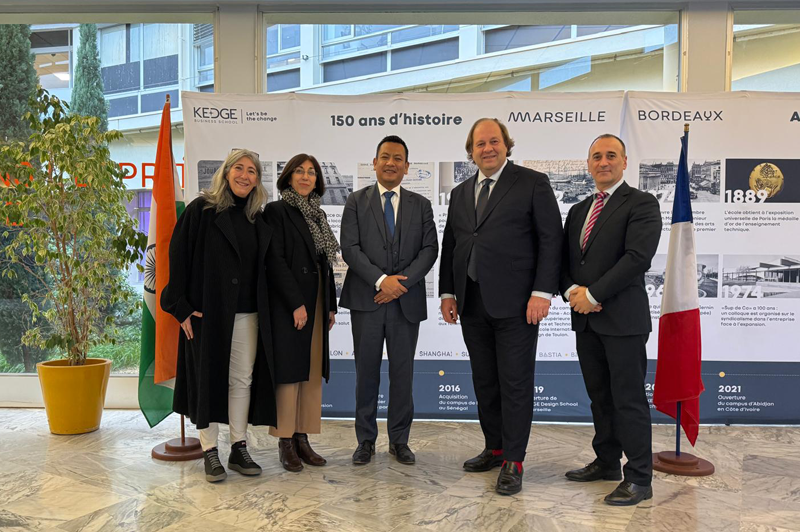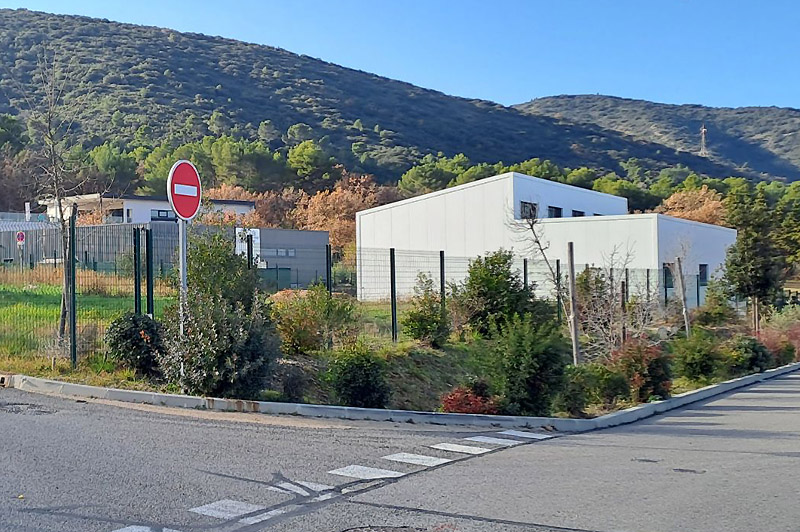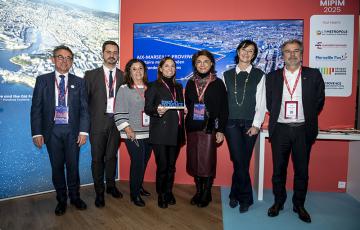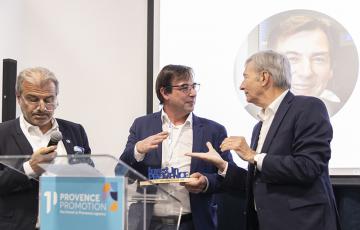Big international companies are doubling down on regional hub
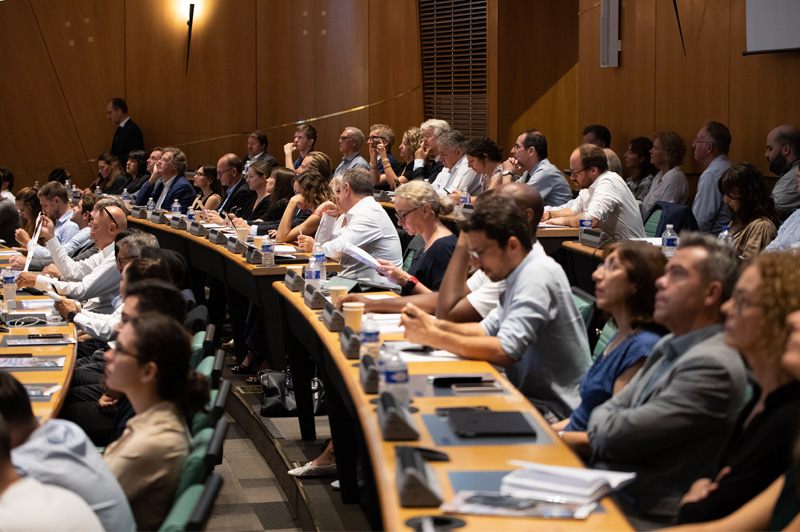
Lessons learned at the Aix-Marseille economic forum
At a time when there is widespread remote working and work-life balance is becoming a bigger issue for human resources, large multinationals are turning away from Paris and the concrete labyrinth of the La Défense business district. More and more companies are seeking solutions in regional metro areas because they offer a better quality of life and an abundance of market opportunities.
The growing regionalization movement among companies
The Aix-Marseille economic forum is a joint initiative of Provence Promotion, the Top 20 Club business network, and the États de la France conference and it brings together international companies to exchange ideas and foster innovation. At meetings held in Marseille on September 15, an exceptional panel of global business leaders from companies such as ABB Ltd., Siemens, Salesforce, and Google gathered to analyze the economic advantages of the Aix-Marseille territory and discuss strategies for regional development.
 While the business appeal of regional metro areas has been growing for years, the pandemic accelerated this trend. People now want to leave dense urban capitals and work from a cottage in Normandy or a farmhouse in Provence, places where there is a high-quality lifestyle, where it’s efficient to work, and where it’s easy to get around. Marc Lhermitte, a partner at the EY consulting firm, outlined the possibilities during his opening comments at the Aix Marseille economic forum.“82% of executives believe that large metro areas (excluding the Paris region) have become more attractive for service sector jobs since the health crisis. Bordeaux, Strasbourg, and Marseille are three cities that can rival Paris. In 2021, Aix-Marseille was ranked second in France in terms of the number of international business set-ups.” Lhermitte also presented the results of the EY Attractiveness survey of France to the hundred or so economic decision-makers that attended the forum. One big takeaway was the perception that major international corporations have of regional metro areas compared to capital cities; companies choosing to open an office or, even more importantly, set up their headquarters in a regional hub are meeting several different business objectives.
While the business appeal of regional metro areas has been growing for years, the pandemic accelerated this trend. People now want to leave dense urban capitals and work from a cottage in Normandy or a farmhouse in Provence, places where there is a high-quality lifestyle, where it’s efficient to work, and where it’s easy to get around. Marc Lhermitte, a partner at the EY consulting firm, outlined the possibilities during his opening comments at the Aix Marseille economic forum.“82% of executives believe that large metro areas (excluding the Paris region) have become more attractive for service sector jobs since the health crisis. Bordeaux, Strasbourg, and Marseille are three cities that can rival Paris. In 2021, Aix-Marseille was ranked second in France in terms of the number of international business set-ups.” Lhermitte also presented the results of the EY Attractiveness survey of France to the hundred or so economic decision-makers that attended the forum. One big takeaway was the perception that major international corporations have of regional metro areas compared to capital cities; companies choosing to open an office or, even more importantly, set up their headquarters in a regional hub are meeting several different business objectives.
“Marseille is not defined in relation to Paris”
 According to David Martin, the Marketing and Transformation Executive for Air Products, which has a helium plant in the town of Rognac in Provence, the Aix-Marseille metro area needs to be considered in a broader international context: “Marseille is not defined in relation to Paris. What’s interesting is to compare it with other European and Mediterranean cities.”
According to David Martin, the Marketing and Transformation Executive for Air Products, which has a helium plant in the town of Rognac in Provence, the Aix-Marseille metro area needs to be considered in a broader international context: “Marseille is not defined in relation to Paris. What’s interesting is to compare it with other European and Mediterranean cities.”
Google France has embraced a regionalization strategy by decentralizing commercial and operational functions. “We want to recreate hubs in the regions, collective spaces to support SMEs that also have mini-offices for teleworking,” says Benoît Tabaka, Director of Institutional Relations and Public Policy for Google France. The German multinational Siemens is another company that is active outside of traditional capitals. “For us, the regions are where it's happening! The developments we support are being implemented in the territories,” explains David Baillet, the Regional Director–South East for Siemens.
“A capital is no longer a necessity” according to Autogrill
Autogrill Europe chose Marseille as the location for its European headquarters 25 years ago and the relationship between the city and the multinational catering company is as successful as ever. Stan Monheim, who oversees 22,000 employees as the General Manager for European Countries at Autogrill, says:“For me, being in a capital is no longer a necessity. Autogrill doesn’t have offices in any capital city. Marseille is very welcoming and there are structures in place to help you navigate the complexities of the French market (UPE13, CCIAMP, Top 20...). It’s an extraordinary social and economic microclimate.”
 CEVA Logistics: “The world comes to us.”
CEVA Logistics: “The world comes to us.”
Jacques Saadé, who founded the CMA shipping company in 1978, fell in love with Marseille and the company has never left the city despite its huge global growth and series of major national and international acquisitions such as CGM, Delmas, APL, Colis Privé, and CEVA Logistics. Today, CMA CGM runs one of the world’s top shipping companies from its Marseille headquarters. “CMA CGM is an avid supporter of the territory. With 95% of our turnover generated outside France, the world comes to us. Being located in a regional hub is not a hindrance when you have genuinely international ambitions,” says Mathieu Friedberg, the CEO of CEVA Logistics. By launching the ZEBOX international tech start-up incubator and the Tangram center for innovation in shipping and logistics, CMA CGM has created a local network that boosts the Aix-Marseille ecosystem and facilitates connections with incoming international companies.
Aix-Marseille: a metro area with a multitude of advantages
Another key asset for the territory is the French Tech Aix Marseille network that supports tech start-ups and sparks innovation. “Because of its high profile with international investors, French Tech is a huge advantage for France. It’s a recognized brand. We need to continue to capitalize on the recent success of Aix-Marseille and to leverage the territory’s academic research capacities. French Tech Aix-Marseille must continue to thrive,” says EY’s Marc Lhermitte.
Thanks to its subsea cable infrastructure and data center networks, Marseille will soon be in the Top 5 most connected cities in the world. As a result, the metro area is attracting major digital services companies. “In the region, we support 40 tech associations such as Code4Marseille, INCO Incubators, and Les Décodeuses... Our employability program will help fill 211 000 jobs in France by 2026,” says Emilie Sidiqian, the Director General of Salesforce France.
 Westinghouse, Siemens, ABB, Air Products: Companies committed to decarbonizing industry and transport
Westinghouse, Siemens, ABB, Air Products: Companies committed to decarbonizing industry and transport
The American nuclear industry services provider Westinghouse used the Aix-Marseille economic forum to applaud the territory’s successful commitment to R&D in the nuclear sector. Westinghouse plans on diversifying into the medical sector by producing isotopes for use in MRIs and is also studying the possibility of generating green hydrogen from nuclear energy to power land and sea transport.
Decarbonizing the shipping and industrial activities connected to ports is a market priority for ABB, which has been operating in the Marseille neighborhood of L’Estaque for years. “We support our clients’ transition to smart and sustainable electrification. We need to be able to manage different energy sources (nuclear, photovoltaic, wind, hydrogen, etc.) in real time. Digital technologies and data will help optimize the consumption of low-carbon electricity. Marseille is well equipped for this,” says Fabien Laleuf, Director General of ABB France.
The Aix-Marseille economic forum also made it clear that metro areas with port facilities will play a decisive role in the decarbonization of the economy. “When we make our investment decisions, we look at ports with an industrial basin and mobility advantages. For an investor, a territory’s enthusiasm for a project is essential to its concretization,” says David Martin of Air Products.
The benefits of diversity in the Aix-Marseille metro area
 Marseille’s cultural and social diversity is increasingly becoming a recruitment opportunity for major corporations as part of both their expansion projects and CSR strategies. The inclusion of people who are distanced from traditional labor markets is a major focus for the territory, particularly in the digital sector, with key infrastructure projects for tech training such as La Plateforme and Theodora in the economically disadvantaged northern neighborhoods of Marseille.
Marseille’s cultural and social diversity is increasingly becoming a recruitment opportunity for major corporations as part of both their expansion projects and CSR strategies. The inclusion of people who are distanced from traditional labor markets is a major focus for the territory, particularly in the digital sector, with key infrastructure projects for tech training such as La Plateforme and Theodora in the economically disadvantaged northern neighborhoods of Marseille.
For the Lyon-based Adecco Group, a world leader in human resources and temporary staffing with 6500 employees and 900 agencies in France, this enormous pool of emerging talent is another draw of the Aix-Marseille territory. “Adecco has a very strong footprint in the regions and in Aix-Marseille. The multiplicity of sectors and the sizes of the companies are real advantages. There are more opportunities for job applicants,” notes Sébastien Hampartzoumian, Adecco’s Vice President of Operations.
The human resources of Aix-Marseille also appealed to Aion, the pioneering watch manufacturer that recently set up operations in La Ciotat. “Provence is very enticing when it comes to attracting employees. We haven’t even started our recruitment campaign but we’re already receiving resumes every day,” says Céline Guth, the director general of Aion.
 Aix-Marseille’s quality of life is another vital part of the territory’s human resources advantage. “Our ability to attract people and investment isn’t just a question of our great weather, but it’s also the balance we can offer between professional and personal life, which is one of the essential criteria for new generations of talent,” observes Philippe Bernand, the head of the Top 20 Club and the Chairman of the Board of Directors for the Marseille Provence Airport.
Aix-Marseille’s quality of life is another vital part of the territory’s human resources advantage. “Our ability to attract people and investment isn’t just a question of our great weather, but it’s also the balance we can offer between professional and personal life, which is one of the essential criteria for new generations of talent,” observes Philippe Bernand, the head of the Top 20 Club and the Chairman of the Board of Directors for the Marseille Provence Airport.
Pascal Picq, the paleoanthropologist and human evolution expert, closed the Aix-Marseille economic forum by reminding the audience of the richness of regional ecosystems: “When each stakeholder, while looking out for its own interests also provides free services to other stakeholders, the socio-economic knock-on benefits are multiplied by 10. The ecosystem becomes much more creative, innovative, and, above all, resilient because the more interactions you have within the ecosystem, the more difficult it will be for a competitor to take your place!”
The recommendations made by the business leaders during the Aix Marseille economic forum will be presented to the French government at the final meetings of the États de la France economic development conference, which will be held on November 15 at the Palais d’Iéna in Paris.
Photos from the Aix-Marseille economic forum



 +33 4 96 11 60 00
+33 4 96 11 60 00





